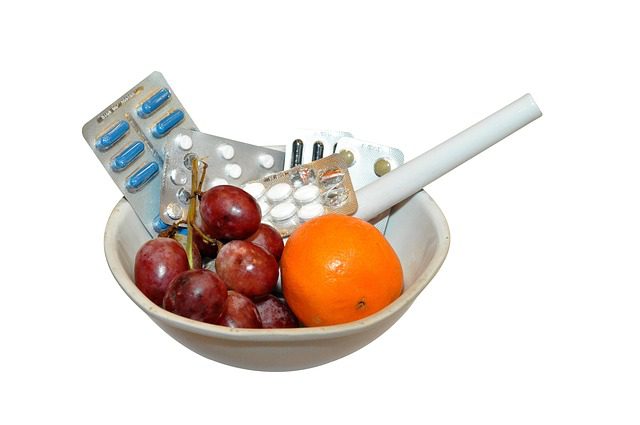Discover 7 scientifically-proven foods that enhance brain function, improve memory, and boost cognitive performance naturally.
Sarah noticed something concerning during her morning meeting last Tuesday. Mid-sentence, while presenting quarterly results to her team, her mind went completely blank.
The numbers she’d memorized the night before simply vanished.
Her colleagues waited patiently as she shuffled through her notes, but the embarrassment was crushing. At 34, she wondered if this was normal aging or something more serious.
Sound familiar? You’re not alone. Research shows that 40% of people over 30 experience some form of memory decline, but here’s the good news: what you eat can dramatically impact your brain’s performance.
Harvard Health research reveals that brain-healthy foods are the same ones that protect your heart and blood vessels, with certain nutrients specifically targeting cognitive function.
Why Your Brain Needs the Right Fuel
>>Affordable Health Insurance Plans Nigeria 2025
Your brain consumes approximately 20% of your daily calories, making it one of your body’s most energy-demanding organs. Just like a high-performance car needs premium fuel, your brain requires specific nutrients to function optimally.
Scientific studies show that dietary factors directly influence neuronal function and synaptic plasticity, essentially rewiring your brain for better performance.
The connection between nutrition and cognitive function isn’t new, but recent research has revealed exactly which foods provide the most significant benefits. Let’s explore the seven most powerful brain-boosting foods that can help you avoid those embarrassing “brain fog” moments.
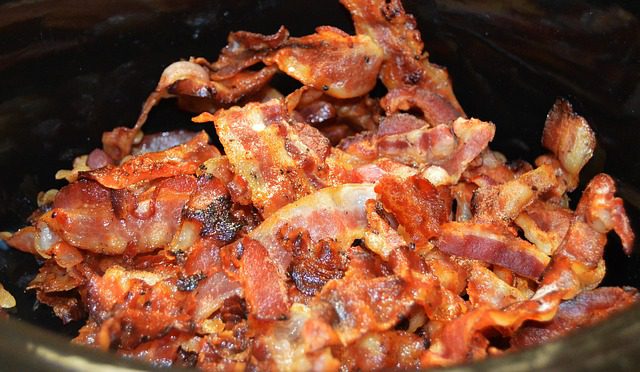
1. Fatty Fish: The Ultimate Brain Food
When Maria, a 45-year-old accountant, started eating salmon twice a week, she noticed her concentration during tax season improved dramatically. Her secret? Omega-3 fatty acids found in fatty fish like salmon, mackerel, sardines, and trout are essential for building brain cell membranes and supporting communication between neurons.
Why it works: Omega-3s, particularly DHA (docosahexaenoic acid), make up 30% of your brain’s structure. Without adequate levels, your brain literally cannot function properly.
How to incorporate it:
- Aim for 2-3 servings of fatty fish per week
- Try grilled salmon with herbs, mackerel salad, or sardine toast
- If you’re vegetarian, consider algae-based omega-3 supplements
Quick tip: Wild-caught fish typically contains higher omega-3 levels than farm-raised varieties.
>>Top 5 Supplements to Boost Energy and Focus in 2025
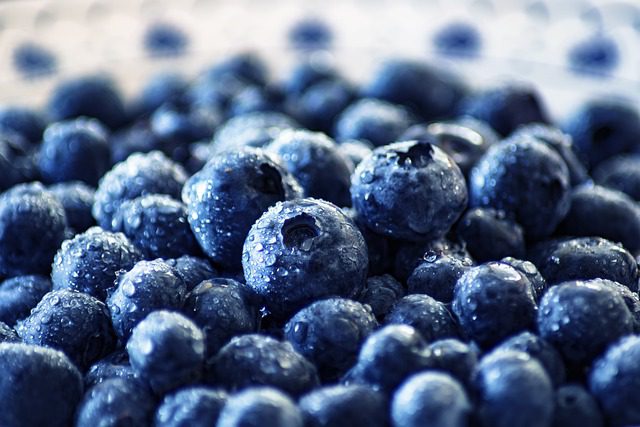
2. Blueberries: Nature’s Memory Enhancers
Tom, a graduate student, discovered blueberries during his thesis writing. After adding a cup to his morning routine, he found himself remembering research details more clearly and focusing for longer periods without mental fatigue.
Blueberries are packed with anthocyanins, powerful antioxidants that cross the blood-brain barrier and concentrate in memory-related brain regions. Studies show that regular blueberry consumption can improve memory by up to 20% in just 12 weeks.
The science: Anthocyanins increase BDNF (brain-derived neurotrophic factor), a protein that promotes new brain cell growth and protects existing neurons from damage.
Best ways to eat them:
- Fresh blueberries in yogurt or oatmeal
- Frozen blueberries in smoothies (they retain most nutrients)
- Blueberry compote over whole grain pancakes
Storage tip: Freeze fresh blueberries in single-serving portions to maintain their antioxidant power year-round.

3. Dark Leafy Greens: The Brain’s Best Friends
Jennifer, a busy marketing executive, started adding spinach to her lunch salads after her doctor mentioned cognitive decline prevention.
Within months, she noticed sharper thinking and better problem-solving abilities during stressful projects.
Leafy greens like kale, spinach, collards, and broccoli are rich in brain-healthy nutrients including vitamin K, lutein, folate, and beta carotene. These nutrients work together to slow cognitive decline and improve memory formation.
Key nutrients and benefits:
- Vitamin K: Essential for forming sphingolipids, fats that make up brain cell membranes
- Folate: Supports neurotransmitter production and DNA repair
- Lutein: Protects against age-related cognitive decline
- Beta carotene: Converts to vitamin A, crucial for brain development
Easy incorporation methods:
- Spinach in morning smoothies (you won’t taste it)
- Kale chips as a crunchy snack
- Collard green wraps instead of tortillas
- Broccoli roasted with olive oil and garlic
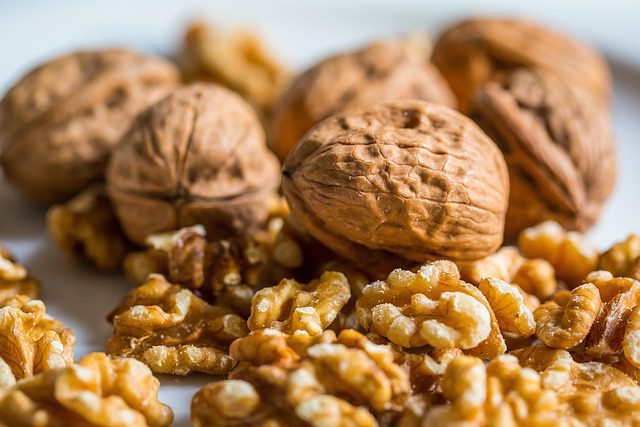
4. Walnuts: Portable Brain Power
David, a software developer, keeps a small container of walnuts at his desk. He credits this simple habit with helping him solve complex coding problems more efficiently and maintaining focus during long programming sessions.
Among nuts, walnuts earn the top award for brain health. They’re the only nut with significant amounts of DHA omega-3 fatty acids, plus they provide vitamin E and healthy fats that support brain function.
What makes walnuts special:
- Highest omega-3 content among tree nuts
- Vitamin E protects brain cells from oxidative stress
- Magnesium supports nerve function and memory
- Protein provides steady energy for brain function
Optimal consumption:
- 1-2 ounces daily (about 28-56 walnut halves)
- Raw walnuts retain the most nutrients
- Soak overnight for easier digestion
Creative serving ideas:
- Walnut-crusted chicken or fish
- Chopped walnuts in salads
- Homemade trail mix with dried fruit

5. Dark Chocolate: The Delicious Brain Booster
Lisa, a high school teacher, allows herself a small piece of dark chocolate each afternoon. She finds it helps her maintain energy and patience during challenging late-day classes. Her secret? Dark chocolate contains compounds that enhance cognitive function.
Dark chocolate (70% cacao or higher) contains flavonoids, caffeine, and antioxidants that improve blood flow to the brain and enhance memory, focus, and mood.
Scientific benefits:
- Flavonoids increase blood flow to memory and learning centers
- Mild caffeine content provides alertness without jitters
- Phenylethylamine releases mood-boosting endorphins
- Antioxidants protect against age-related cognitive decline
Choosing the right chocolate:
- Minimum 70% cacao content
- Avoid milk chocolate (too much sugar, not enough cacao)
- Look for organic, minimally processed varieties
- Limit to 1-2 squares daily
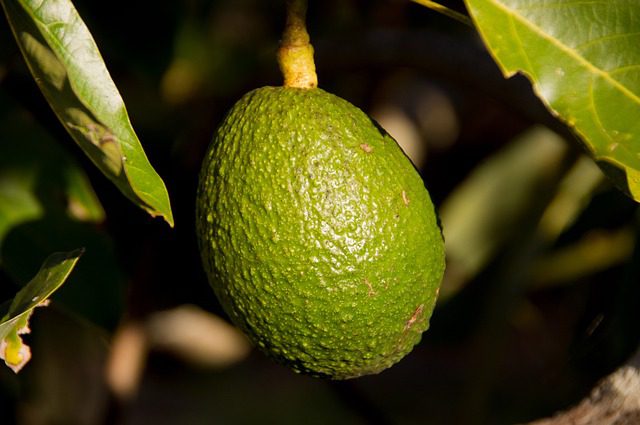
6. Avocados: Creamy Brain Fuel
Mark, a college professor, starts every day with avocado toast. He’s noticed improved concentration during lectures and better memory recall when preparing lesson plans.
The secret lies in avocados’ unique nutritional profile.
Avocados provide monounsaturated fats that promote healthy blood flow to the brain, plus folate and vitamin K that support cognitive function and memory formation.
Brain-boosting compounds:
- Monounsaturated fats improve blood flow and reduce inflammation
- Folate supports neurotransmitter production
- Vitamin K aids in cognitive processing
- Lutein protects against cognitive decline
Versatile preparation methods:
- Classic avocado toast with whole grain bread
- Smoothie ingredient for creaminess
- Guacamole with vegetable sticks
- Sliced in salads or grain bowls
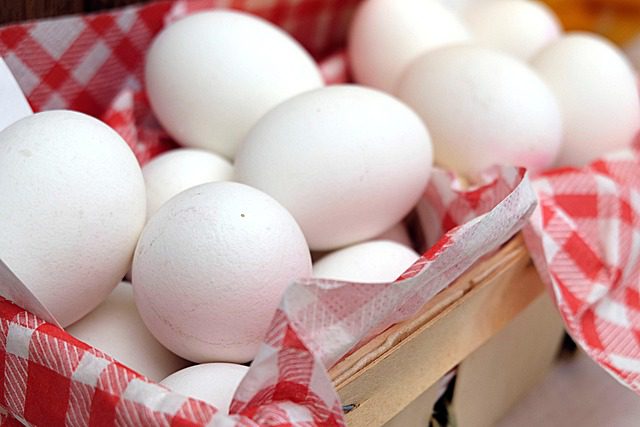
7. Eggs: Complete Brain Nutrition
Rachel, a nurse working 12-hour shifts, credits scrambled eggs with helping her stay alert and focused during long, demanding workdays. Eggs provide complete nutrition for optimal brain function.
Eggs contain choline, high-quality protein, and essential vitamins that support memory, learning, and neurotransmitter production. The yolk is particularly rich in brain-supporting nutrients.
Key brain nutrients in eggs:
- Choline: Produces acetylcholine, crucial for memory and learning
- Vitamin B12: Supports nerve function and prevents cognitive decline
- Folate: Aids in neurotransmitter synthesis
- Protein: Provides steady energy and amino acids for brain function
Optimal preparation:
- Soft-boiled to preserve nutrient content
- Scrambled with vegetables for added nutrients
- Hard-boiled for convenient snacking
- Poached over whole grain toast
Creating Your Brain-Healthy Meal Plan
Now that you know the top seven brain-boosting foods, here’s how to incorporate them into your daily routine:
Breakfast: Scrambled eggs with spinach, served with half an avocado on whole grain toast
Snack: Handful of walnuts with fresh blueberries
Lunch: Salmon salad with mixed greens and avocado
Afternoon snack: Small piece of dark chocolate
Dinner: Grilled mackerel with roasted broccoli and kale
The Timeline: When to Expect Results
Many people wonder how quickly they’ll see improvements. Based on research and user experiences:
- Week 1-2: Improved energy and reduced brain fog
- Week 3-4: Better focus and concentration
- Month 2-3: Enhanced memory and cognitive processing
- Month 6+: Long-term brain health benefits and protection against decline
Common Mistakes to Avoid
- Inconsistent consumption: Benefits require regular intake, not occasional indulgence
- Processed versions: Choose whole foods over supplements when possible
- Ignoring preparation methods: Cooking methods affect nutrient retention
- Unrealistic expectations: Brain health is a long-term investment, not a quick fix
Beyond Nutrition: Lifestyle Factors That Enhance Brain Function
While diet is crucial, combine these foods with:
- Regular physical exercise (increases BDNF production)
- Adequate sleep (7-9 hours for optimal brain function)
- Stress management through meditation or yoga
- Mental challenges like puzzles or learning new skills
- Social connections and meaningful relationships
Your Action Plan: Starting Today
- Week 1: Add one brain-boosting food to each meal
- Week 2: Increase variety and frequency
- Week 3: Create consistent meal patterns
- Week 4: Monitor improvements in focus and memory
Remember Sarah from our opening story? After implementing these dietary changes, she now confidently leads meetings without notes and has noticed significant improvements in her memory and focus.
Her secret wasn’t expensive supplements or complicated routines—just consistent consumption of these seven powerful brain-boosting foods.
The path to better brain health starts with your next meal.
Choose one of these seven foods and begin your journey toward sharper thinking, better memory, and improved cognitive performance. Your brain will thank you, and more importantly, you’ll notice the difference in your daily life.
Take action now: Pick one brain-boosting food from this list and incorporate it into tomorrow’s breakfast. Your future self will thank you for this simple yet powerful decision.
This article is for informational purposes only and is not intended to replace professional medical advice. Consult with healthcare providers before making significant dietary changes, especially if you have existing health conditions or take medications.




